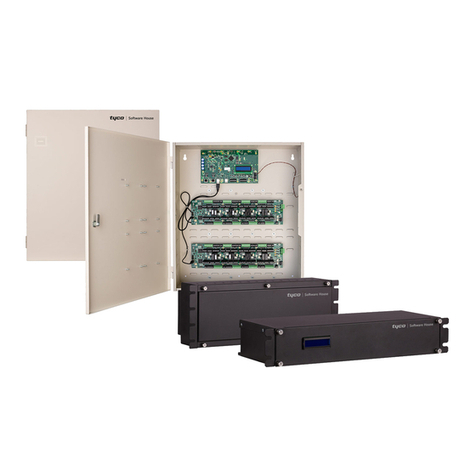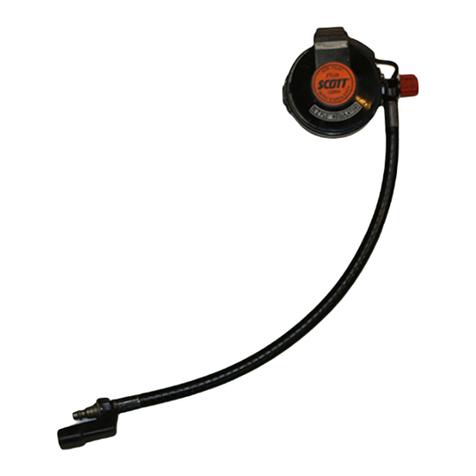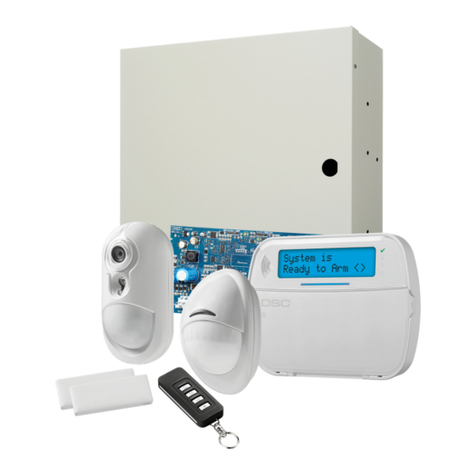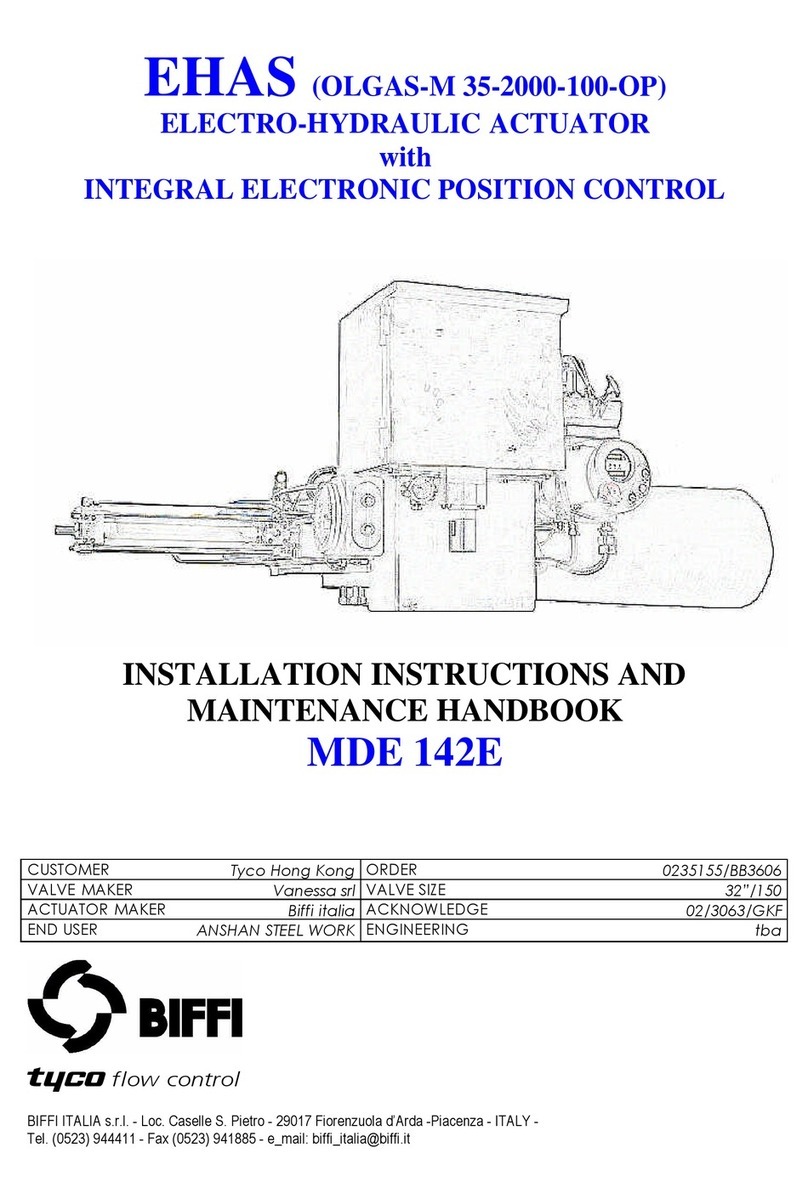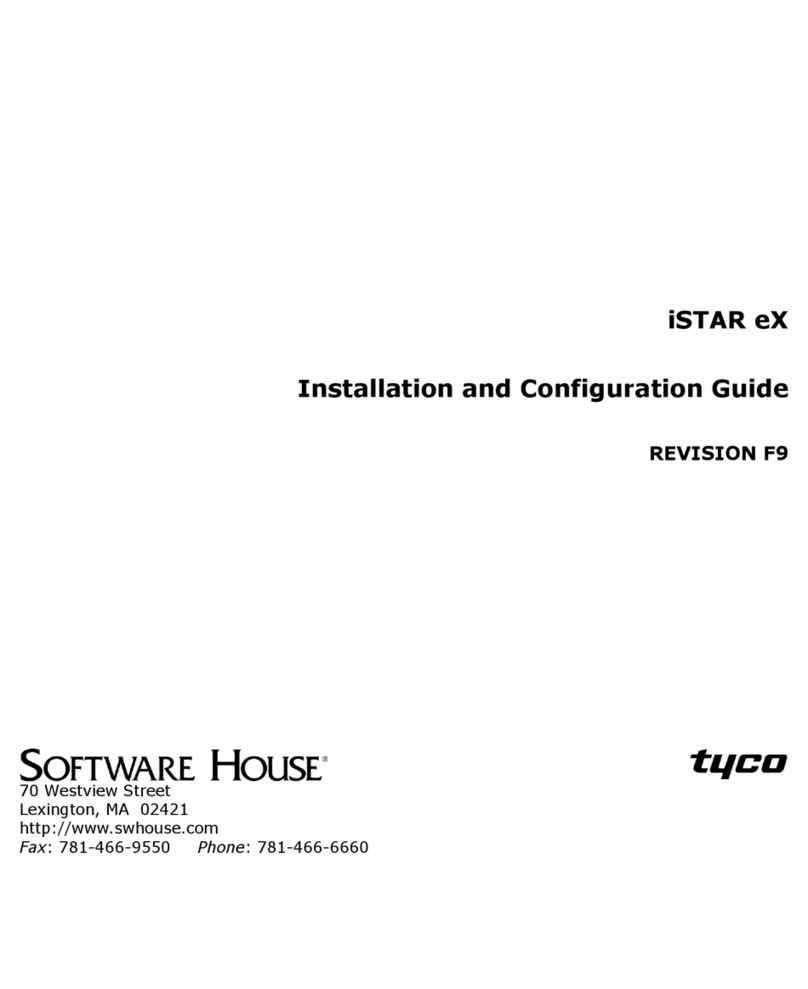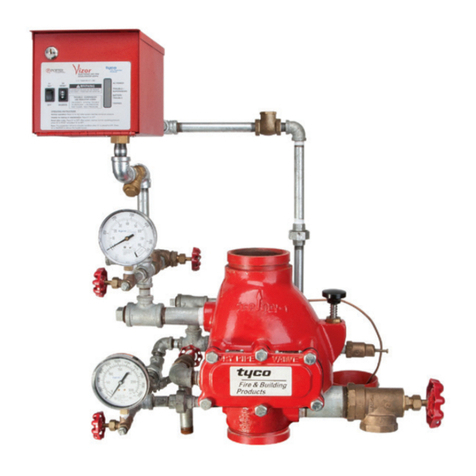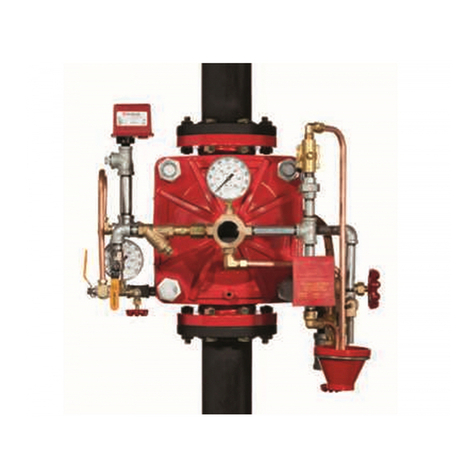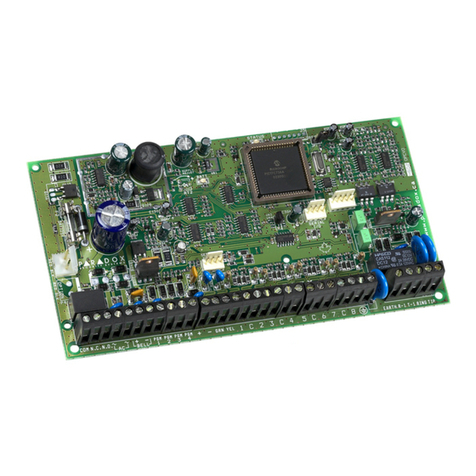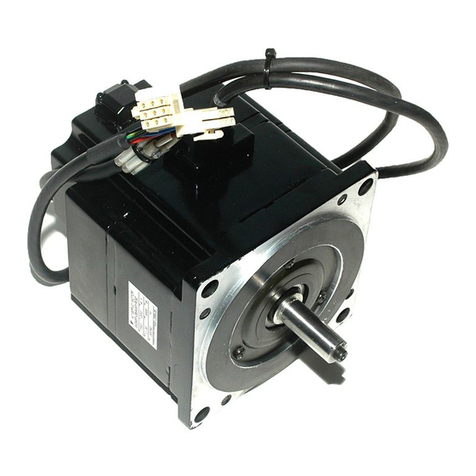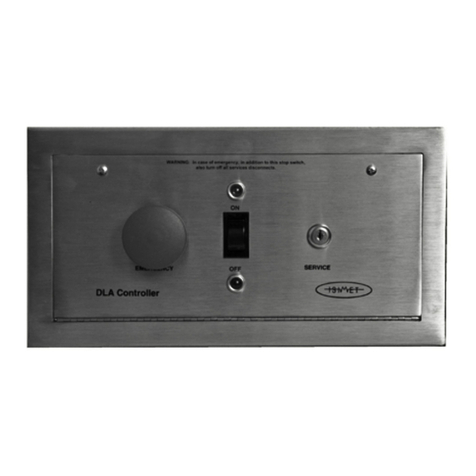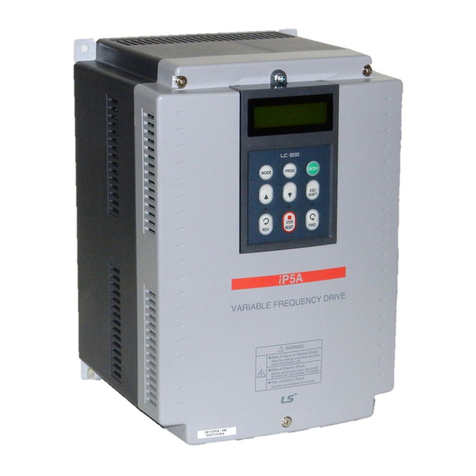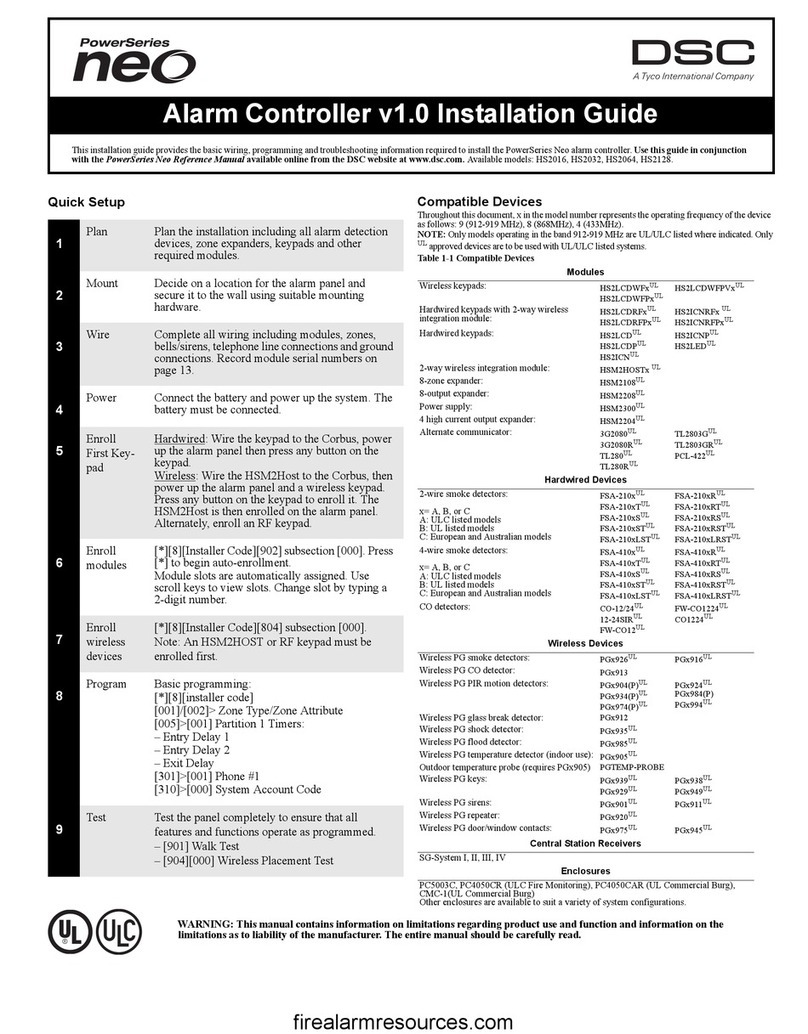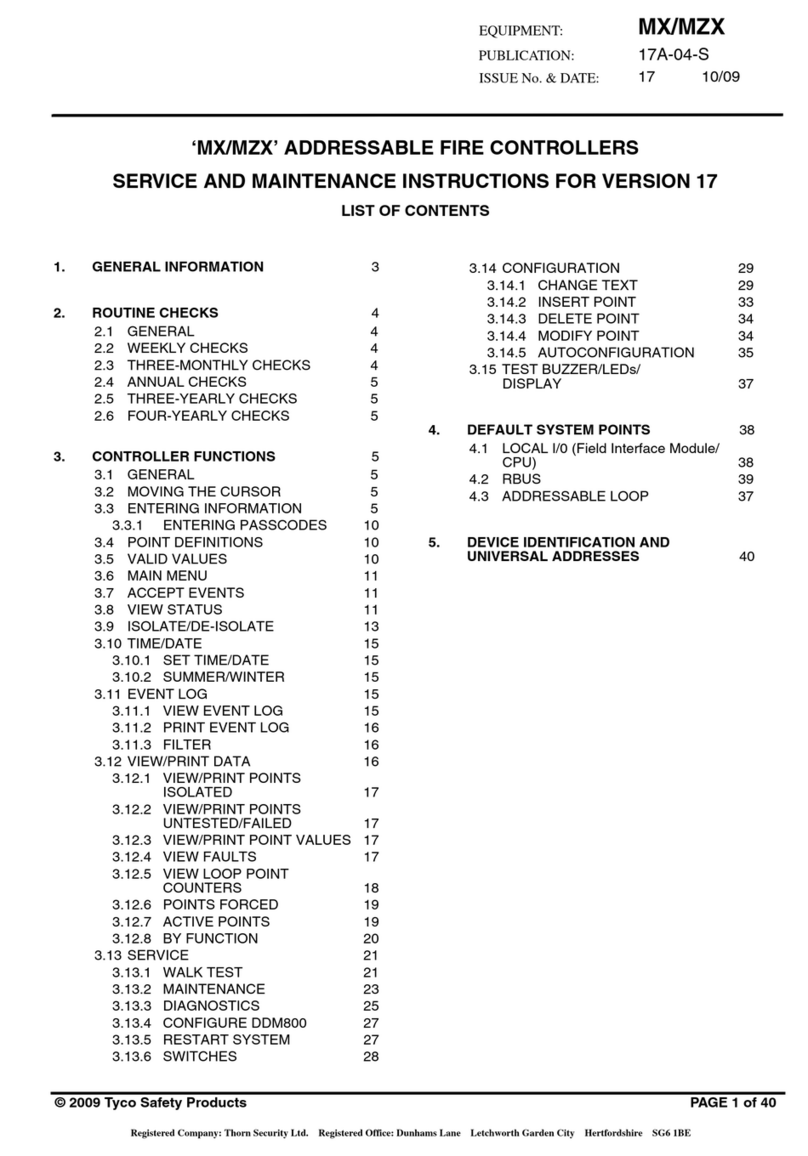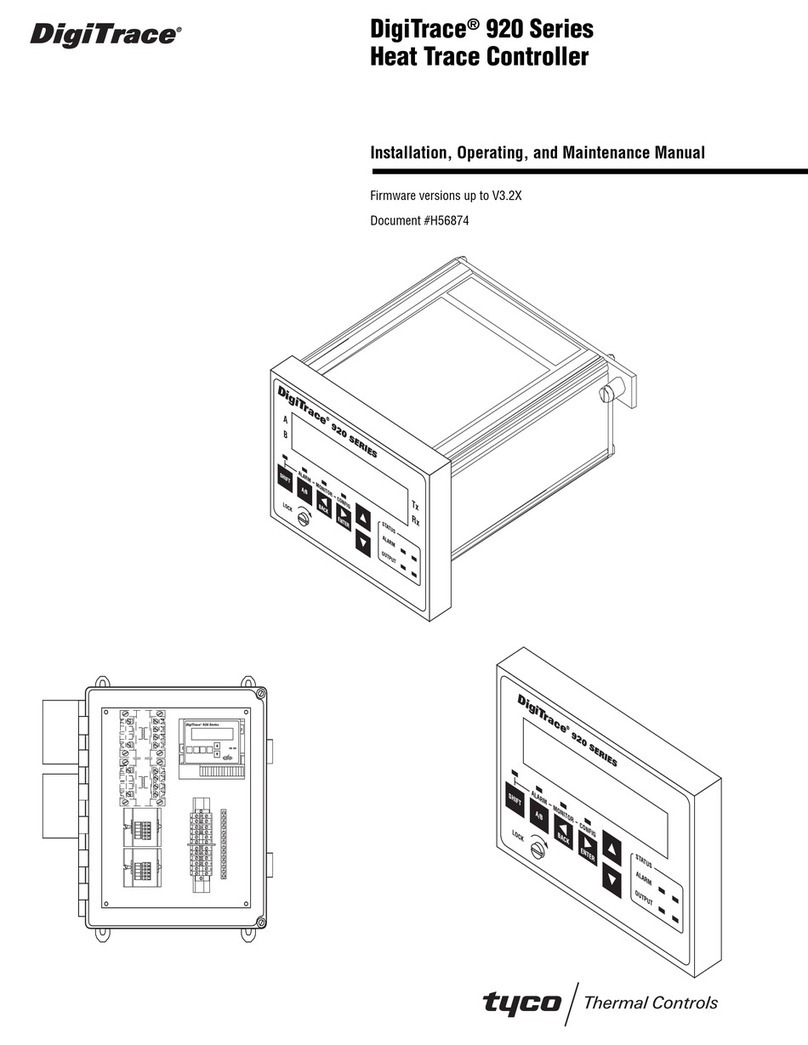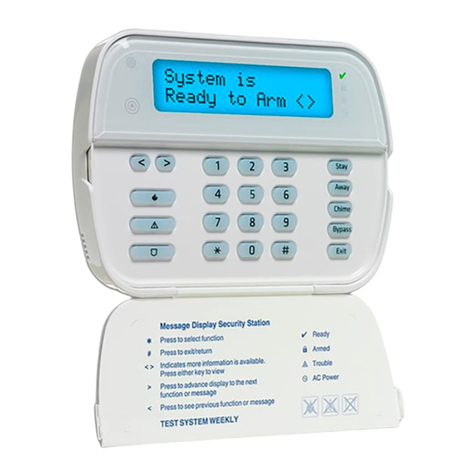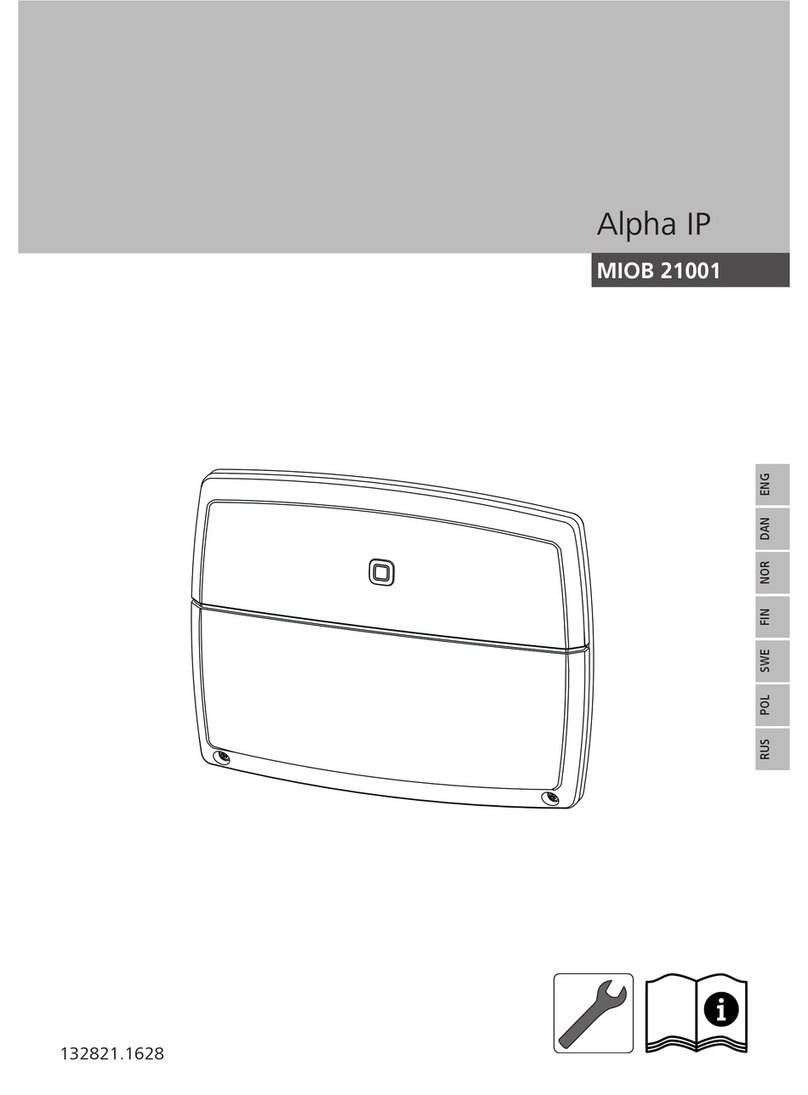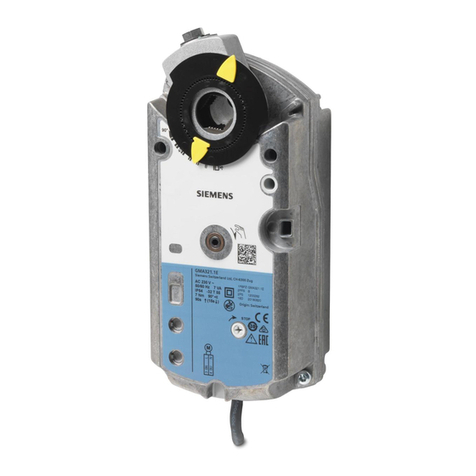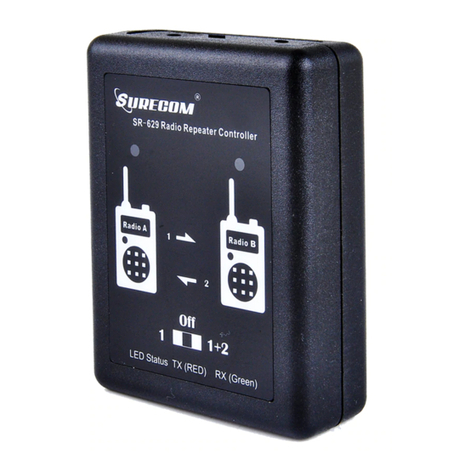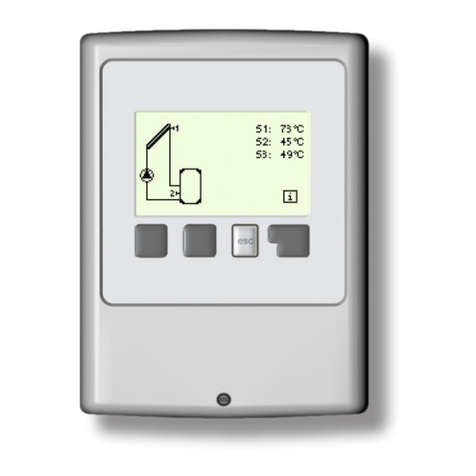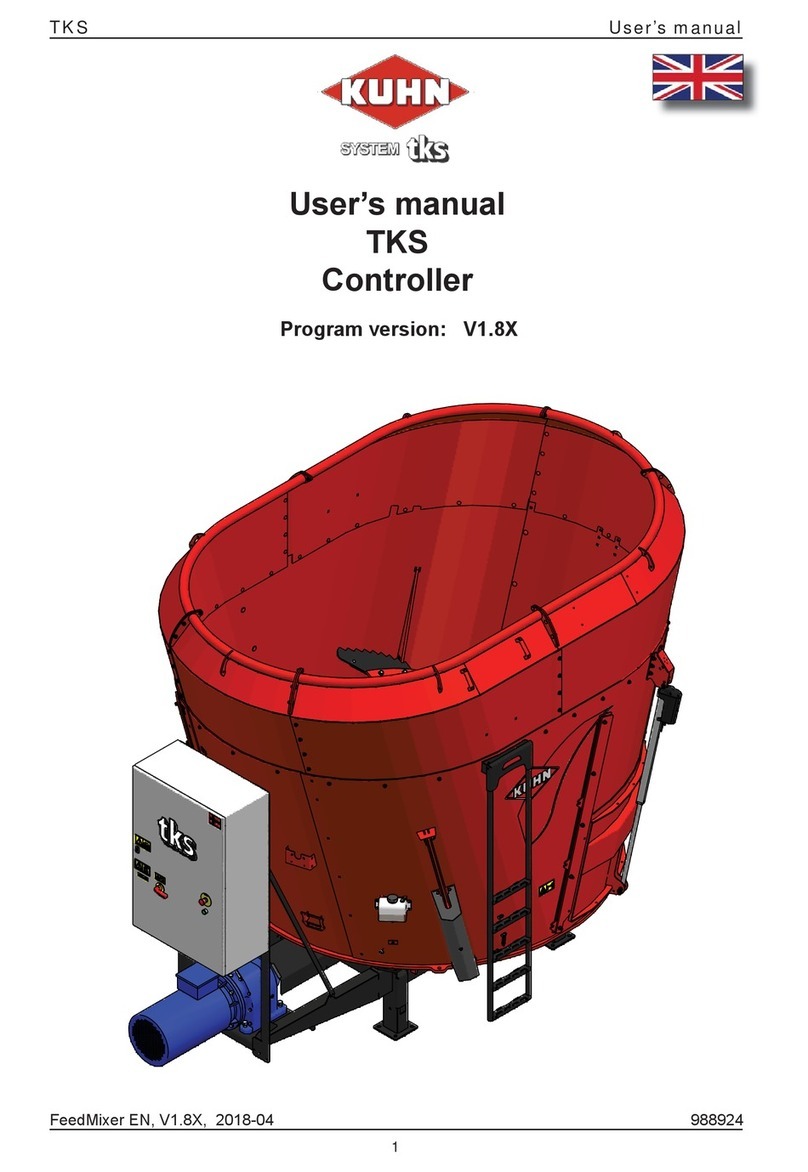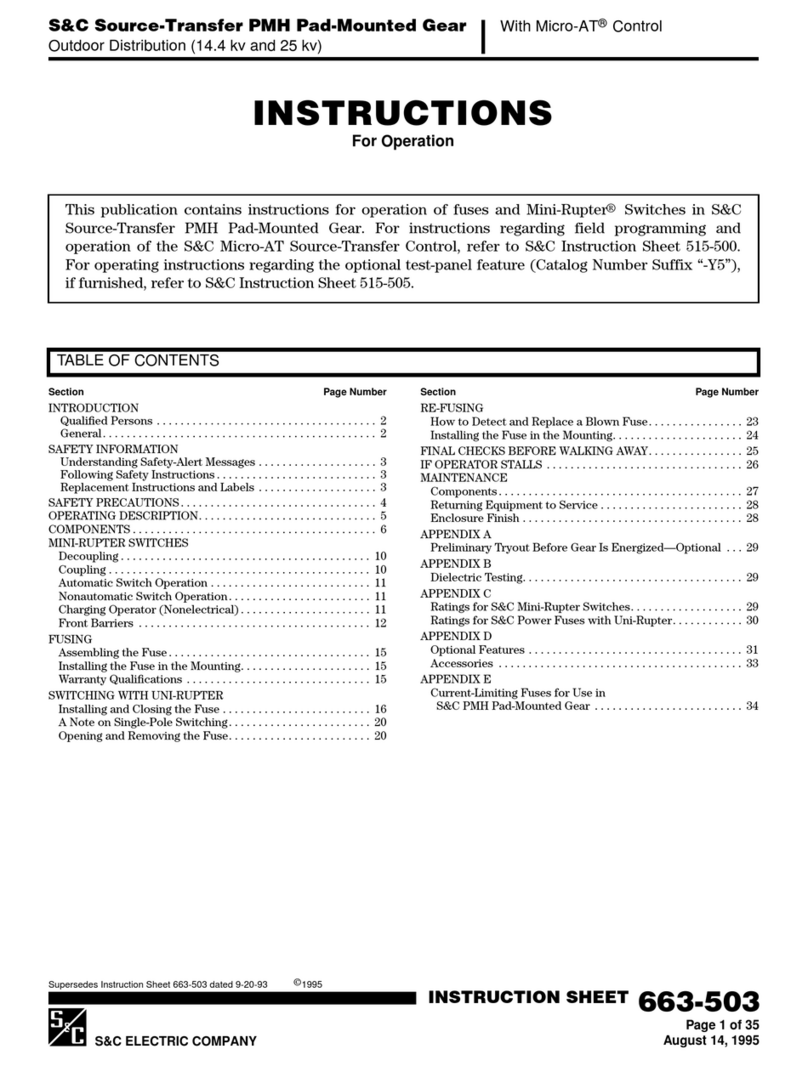
Warning: Installer Please Read
Carefully
Note to installers
The warnings on this page contain vital information. As the only
individual in contact with system users, it is the installer’s responsibility
to bring each item in this warning to the attention of all users of this
system.
System failures
This system has been carefully designed to be as effective as possible.
There are circumstances, however, involving fire, burglary, or other
types of emergencies where it may not provide protection. Any alarm
system of any type may be compromised deliberately or may fail to
operate as expected for a variety of reasons. Some, but not all, of the
reasons may be:
Access by intruders
Intruders may enter through an unprotected access point, circumvent a
sensing device, evade detection by moving through an area of
insufficient coverage, disconnect a warning device, or interfere with
or prevent the proper operation of the system.
Component failure
Although every effort has been made to make this system as reliable as
possible, the system may fail to function as intended due to the failure
of a component.
Compromise of radio frequency (Wireless)
A device's signals may not reach the receiver under all circumstances,
which could include: metal objects placed on or near the radio path,
deliberate jamming or other inadvertent radio signal interference.
Criminal knowledge
This system contains security features which were known to be
effective at the time of manufacture. It is possible for persons with
criminal intent to develop techniques which reduce the effectiveness of
these features. It is important that your security system be reviewed
periodically to ensure that its features remain effective and that it is
updated or replaced if it is found that it does not provide the protection
expected.
Failure of replaceable batteries
This system’s wireless transmitters have been designed to provide
several years of battery life under normal conditions. The expected
battery life is a function of the device environment, usage, and type.
Ambient conditions such as high humidity, high or low temperatures, or
large temperature fluctuations may reduce the expected battery life.
While each transmitting device has a low battery monitor which
identifies when the batteries need to be replaced, this monitor may fail
to operate as expected. Regular testing and maintenance will keep the
system in good operating condition.
Inadequate installation
A security system must be installed properly in order to provide
adequate protection. Every installation should be evaluated by a
security professional to ensure that all access points and areas are
covered. Locks and latches on windows and doors must be secure and
operate as intended. Windows, doors, walls, ceilings and other building
materials must be of sufficient strength and construction to provide the
level of protection expected. A reevaluation must be done during and
after any construction activity. An evaluation by the fire and/or police
department is highly recommended if this service is available.
Inadequate testing
Most problems that would prevent an alarm system from operating as
intended can be found by regular testing and maintenance. The
complete system should be tested weekly and immediately after a
break-in, an attempted break-in, a fire, a storm, an earthquake, an
accident, or any kind of construction activity inside or outside the
premises. The testing should include all sensing devices, keypads,
consoles, alarm indicating devices, and any other operational devices
that are part of the system.
Insufficient time
There may be circumstances when the system will operate as intended,
yet the occupants will not be protected from an emergency due to their
inability to respond to the warnings in a timely manner. If the system is
remotely monitored, the response may not occur in time to protect the
occupants or their belongings.
Motion detectors
Motion detectors can only detect motion within the designated areas as
shown in their respective installation instructions. They cannot
discriminate between intruders and intended occupants. Motion
detectors do not provide volumetric area protection. They have
multiple beams of detection and motion can only be detected in
unobstructed areas covered by these beams. They cannot detect motion
which occurs behind walls, ceilings, floors, closed doors, glass
partitions, glass doors or windows. Any type of tampering whether
intentional or unintentional such as masking, painting, or spraying of
any material on the lenses, mirrors, windows or any other part of the
detection system will impair its proper operation. Passive infrared
motion detectors operate by sensing changes in temperature. However
their effectiveness can be reduced when the ambient temperature rises
near or above body temperature or if there are intentional or
unintentional sources of heat in or near the detection area. Some of
these heat sources could be heaters, radiators, stoves, barbecues,
fireplaces, sunlight, steam vents, lighting and so on.
Power failure
Control units, intrusion detectors, smoke detectors and many other
security devices require an adequate power supply for proper
operation. If a device operates from batteries, it is possible for the
batteries to fail. Even if the batteries have not failed, they must be
charged, in good condition and installed correctly. If a device operates
only by AC power, any interruption, however brief, will render that
device inoperative while it does not have power. Power interruptions of
any length are often accompanied by voltage fluctuations which may
damage electronic equipment such as a security system. After a power
interruption has occurred, immediately conduct a complete system test
to ensure that the system operates as intended.
Security and insurance
Regardless of its capabilities, an alarm system is not a substitute for
property or life insurance. An alarm system also is not a substitute for
property owners, renters, or other occupants to act prudently to prevent
or minimize the harmful effects of an emergency situation.
Smoke detectors
Smoke detectors that are a part of this system may not properly alert
occupants of a fire for a number of reasons, some of which follow.
The smoke detectors may have been improperly installed or positioned.
Smoke may not be able to reach the smoke detectors, such as when the
fire is in a chimney, walls or roofs, or on the other side of closed doors.
Smoke detectors may not detect smoke from fires on another level of
the residence or building. Every fire is different in the amount of
smoke produced and the rate of burning. Smoke detectors cannot sense
all types of fires equally well. Smoke detectors may not provide timely
warning of fires caused by carelessness or safety hazards such as
smoking in bed, violent explosions, escaping gas, improper storage of
flammable materials, overloaded electrical circuits, children playing
with matches, or arson. Even if the smoke detector operates as
intended, there may be circumstances when there is insufficient
warning to allow all occupants to escape in time to avoid injury or
death.
- 3 -
